Mozilla Firefox (Windows version)
This section describes how to add or delete a client certificate to or from Firefox for Windows.
The master password may be requested in Firefox during the process.
For details on using Firefox, refer to the Firefox support page or manuals.
mozilla support
Adding Client Certificate
This section describes how to add a client certificate to Firefox.
This section explains the scenario using the following environment as an example.
- OS: Windows 10 Pro
- Web browser: Mozilla Firefox 94.0
- Client certificate: Client certificate for Cybozu cloud service (Client Certificate Authentication)
- Obtain a client certificate and client certificate password from your system administrator.
- Client certificate for Client Certificate Authentication (cybozu.cn):
If the system administrator allows the client certificate to be downloaded, you can obtain the client certificate and password by yourself.
For the procedure to obtain a password, confirm Steps 1 and 2 of When Client Certificate Authentication is used.
- Client certificate for Client Certificate Authentication (cybozu.cn):
- Select Settings from "Tools" in the Web browser menu bar.
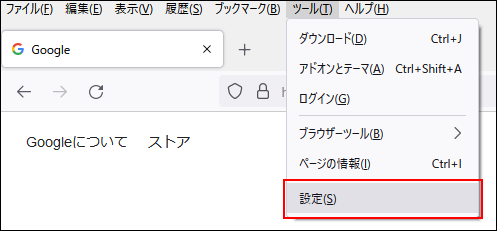 You can also display the screen by clicking the icon
You can also display the screen by clicking the icon
 to open the menu and clicking Settings.
to open the menu and clicking Settings.
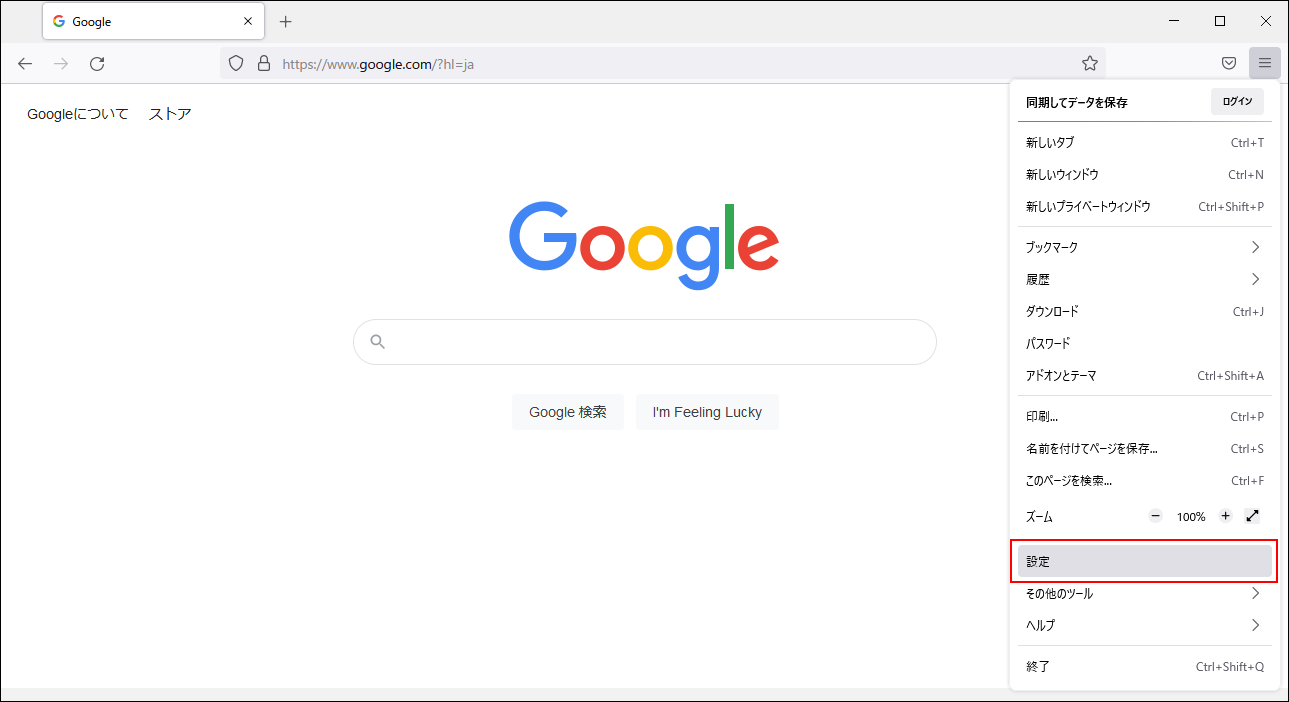 The "Settings" tab is displayed.
The "Settings" tab is displayed. - Click Privacy & Security in the menu on the left.
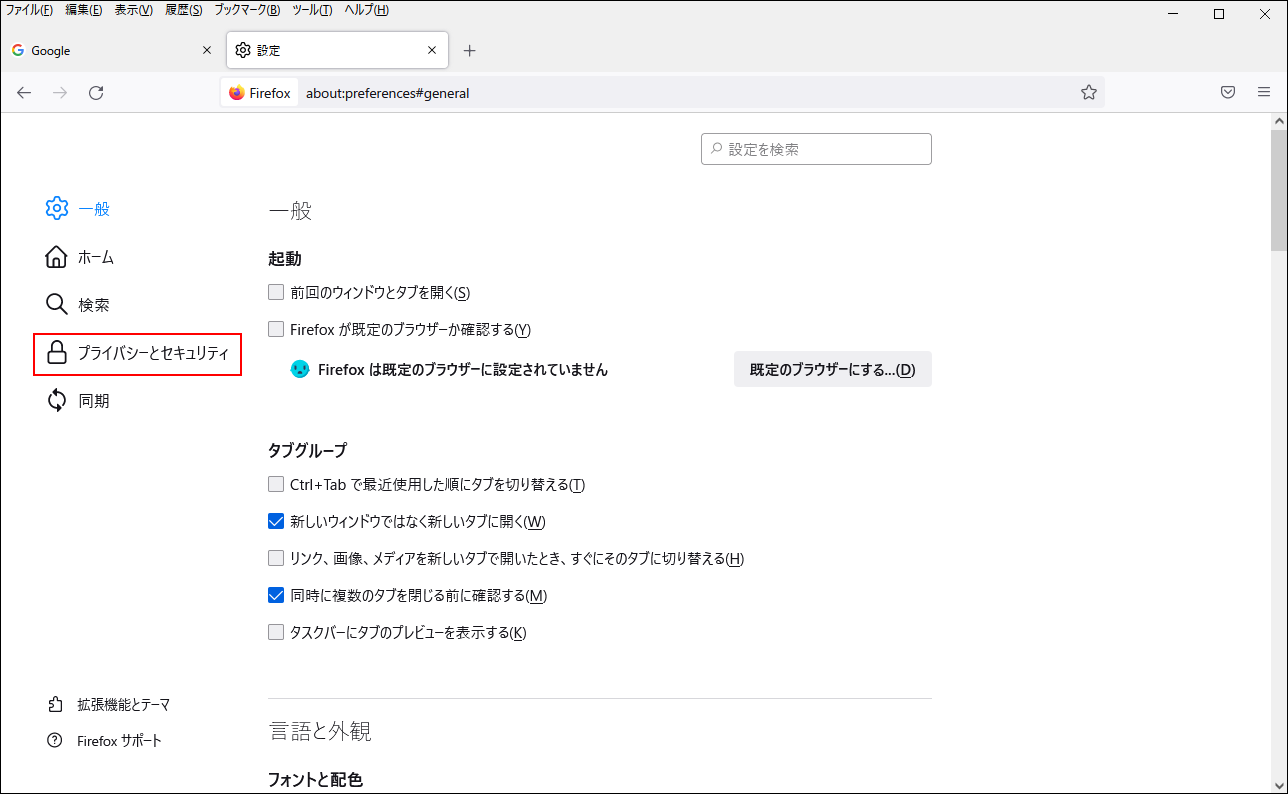
- Click View Certificates under "Certificates".
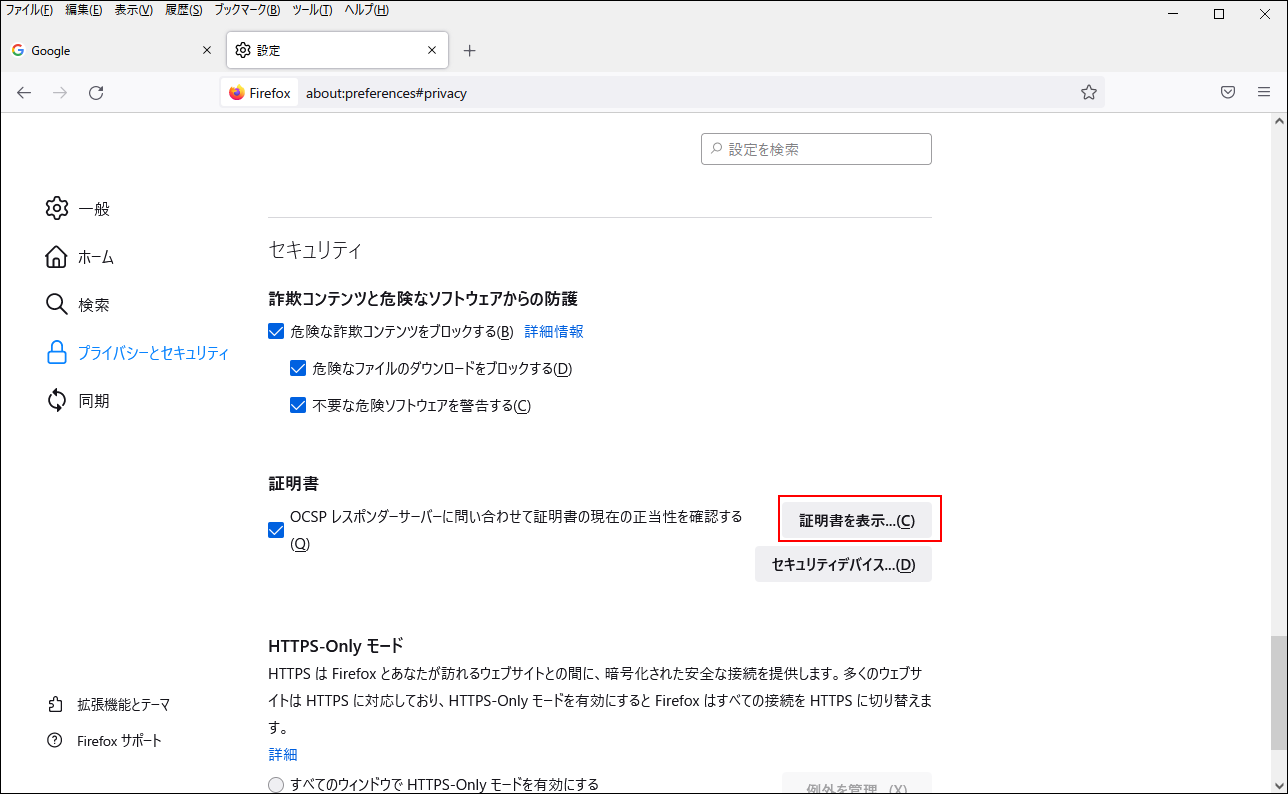
- Click the "Your Certificates" tab, and then click Import.
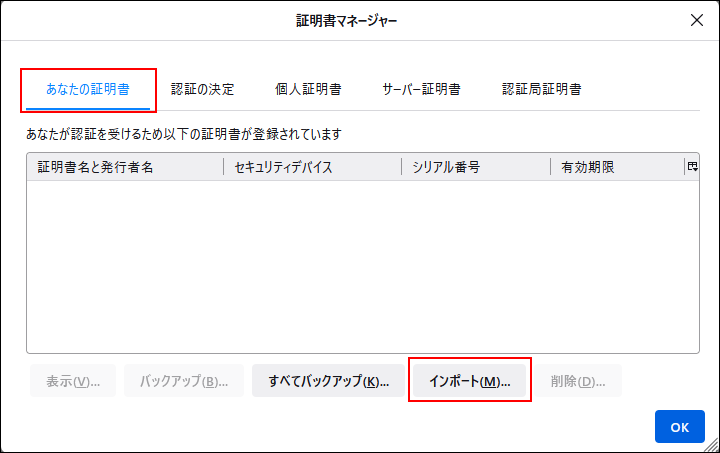
- Click the client certificate named "(your login name).pfx" obtained in Sep 1, and then click Open.
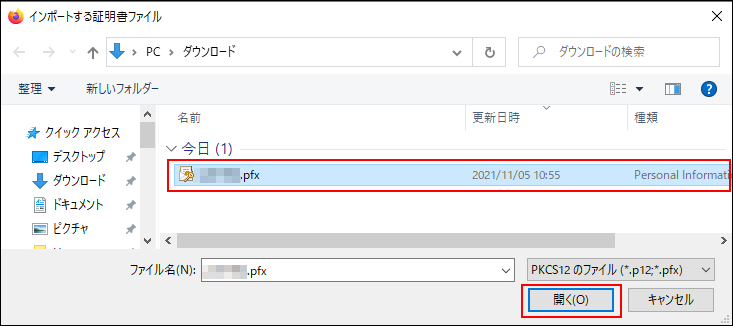
- Enter the client certificate password obtained in Step 1 and click OK.
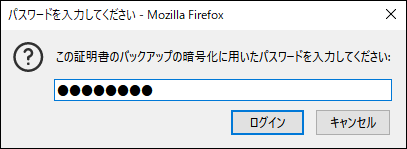
- Confirm that the client certificate is added, and then click OK.
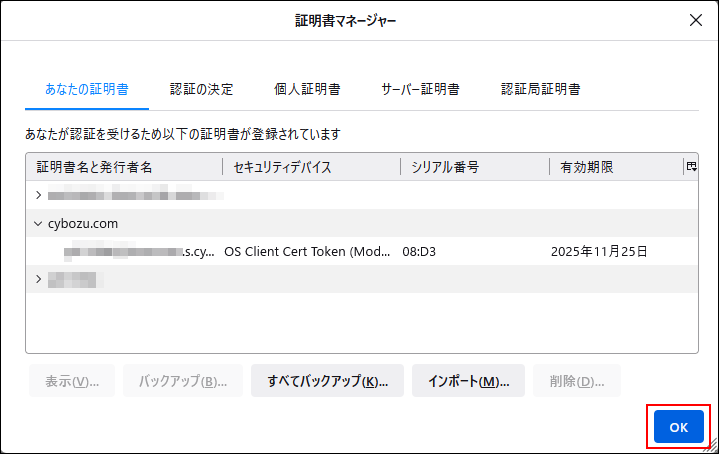
- Close the "Settings" tab.
- In the Address bar of Firefox, enter "https://(subdomain name).s.cybozu.cn/".
If the certificate selection screen is displayed, select the added client certificate and click OK.
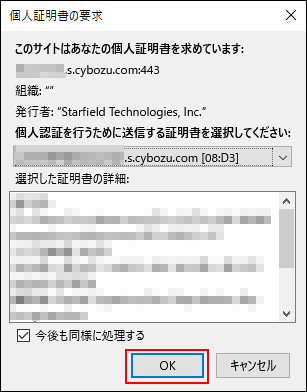 After the login screen of your environment is displayed, confirm whether you can access a service or not.
After the login screen of your environment is displayed, confirm whether you can access a service or not.
Replacing Client Certificate
Replace an existing client certificate with a new one.
- Obtain a new client certificate and its password from your system administrator.
- Delete the old client certificate.
Deleting client certificate - Add a new client certificate.
Adding client certificate
Deleting Client Certificate
Delete the client certificate.
This section explains the scenario using the following environment as an example.
- OS: Windows 10 Pro
- Web browser: Mozilla Firefox 94.0
- Client certificate: Client certificate for Cybozu cloud service (Client Certificate Authentication)
- Select Settings from "Tools" in the Web browser menu bar.
 You can also display the screen by clicking the icon
You can also display the screen by clicking the icon
 to open the menu and clicking Settings.
to open the menu and clicking Settings.
 The "Settings" tab is displayed.
The "Settings" tab is displayed. - Click Privacy & Security in the menu on the left.

- Click View Certificates under "Certificates".

- Double-click the "Your Certificates" tab on the "Certificate Manager" screen, select a certificate you want to delete, and click Delete.
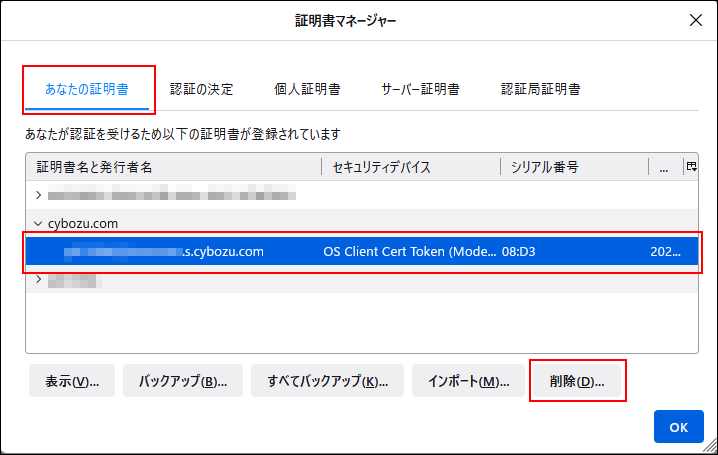
- Click OK on the confirmation screen.
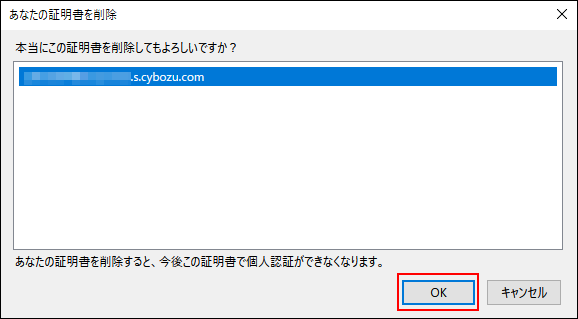
- Confirm that the client certificate is deleted, and then click OK.
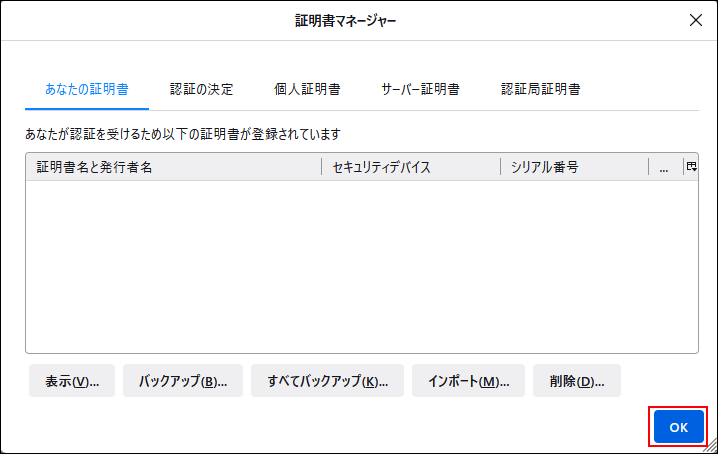
- Close the "Settings" tab.
Now the client certificate added in Firefox has been deleted.
If the client certificate is not deleted
In "Certificate Manager" of Firefox, client certificates added in not only Firefox but also Windows are displayed. A client certificate added in Windows remains displayed in "Certificate Manager" even if it is deleted in Firefox.
Follow the steps below to delete the client certificate added in Windows.
-
Start Control Panel, and then click Network and Internet.
-
Click Internet Options.
-
Click the "Content" tab, and then click Certificates.
-
Click the "Personal" tab, and then click Delete.
-
Click Yes on the warning screen.
-
On the "Certificates" screen, confirm that the client certificate is removed, and then click Close.
-
Click OK to close the "Internet Properties" screen.
Now the client certificate added in Windows has been deleted.